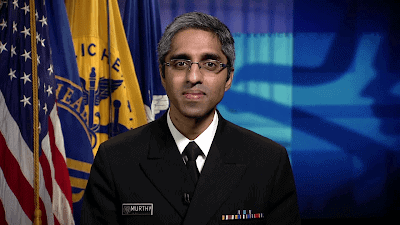
US Surgeon General Report is HERE!!!!
This is a historical event. The Surgeon General of the United State of America has taken notice of the growing problem of #addiction for lots things, drugs, alcohol, sex, opiates, heroin to name a few. I also thought it was my moral failure. That some how I could will myself to different behavior. The cravings where raw, strong and relentless. So I indulged, for many years, waiting for the day that it would catch up to me. I am a person in long term #recovery, which means to me that I have not used Drugs or Alcohol since September 24, 2014. Welcome to the new world!!! Thank you Dr. Murthy for your commitment you made for use earlier this year. Here is the report:
Read the full report here
 https://www.surgeongeneral.gov/
https://www.surgeongeneral.gov/
EXECUTIVE SUMMARY
References:
1. Center for Behavioral Health Statistics and Quality. (2016). Results from the 2015 National Survey on Drug Use and Health: Detailed tables. Rockville, MD: Substance Abuse and Mental Health Services Administration.
2. Sacks, J. J., Gonzales, K. R., Bouchery, E. E., Tomedi, L. E., & Brewer, R. D. (2015). 2010 national and state costs of excessive alcohol consumption. American Journal of Preventive Medicine, 49(5), e73-e79.
3. National Drug Intelligence Center. (2011). National drug threat assessment. Washington, DC: U.S. Department of Justice.
Footnotes:
i. Binge drinking for men is drinking 5 or more standard alcoholic drinks, and for women, 4 or more standard alcoholic drinks on the same occasion on at least 1 day in the past 30 days.
Categories
San Diego





